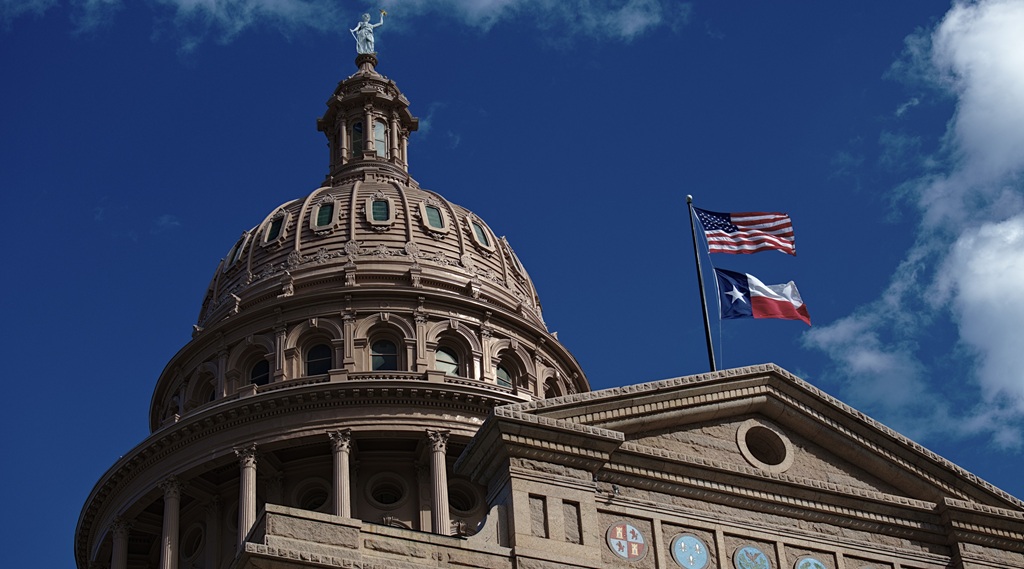Texas leaders cannot keep legislating immigration policy from a place of political posturing and profound misunderstanding. Before drafting new laws—or undoing long-standing ones—they must first grasp the fundamentals of how our immigration system works and who it affects.
On June 4, 2025, the U.S. Department of Justice filed a lawsuit to invalidate the Texas Dream Act, a bipartisan law that has allowed certain undocumented students to pay in-state tuition since 2001. Rather than defend the policy, the Texas Attorney General joined the DOJ in seeking to strike it down.
By day’s end, Texas entered a joint motion with the DOJ, and a federal court issued a permanent injunction. Governor Greg Abbott proudly declared the end of in-state tuition for undocumented students, and the Attorney General called it a win. But Texas didn’t win anything. State leaders invited federal intervention, ignored the will of the Texas legislature, and handed Washington control over how Texas runs its public colleges and universities. The message to hardworking students and families was clear: your efforts don’t matter.
Let’s be clear. This wasn’t a fight. It was a surrender.
Instead of supporting a policy that has benefitted the state of Texas for more than two decades, Texas walked away. It didn’t just abandon a statute; it abandoned students, values, and a competitive economic future.
These students aren’t criminals. They are the best and brightest Texas has to offer. Many were brought here as children, they’ve grown up in our schools and communities. The Texas Dream Act doesn’t give them a free ride. It requires graduation from a Texas high school and a signed affidavit affirming intent to legalize their status when eligible. These are the young people we should be investing in—not excluding.
This wasn’t an isolated incident. Far too often, lawmakers toss out lines like, “Why don’t they get in line?” or “Why don’t they come the right way?” as if those options exist. They don’t. These myths fuel bad policy and fear-driven rhetoric.
And they come at a cost. On June 4, Texas paid that price. The Attorney General—typically eager to challenge federal authority—instead capitulated to DOJ, giving up a state-led policy he should have defended.
9% of Texas’s workforce is undocumented. More than 11% of the state’s U.S. citizen children have at least one undocumented parent. In Houston, undocumented workers make up nearly a third of the construction workforce. As hurricane season begins, these are the people rebuilding our communities. They deserve respect, not scapegoating.
Of all states, Texas should be leading on this issue. Our leaders should be at the forefront—rejecting anti-immigrant tropes, acknowledging that our immigration system needs reform, and advancing real solutions grounded in fact. When immigration debates are driven by rhetoric instead of reality, it’s not just undocumented people who are harmed. It’s all immigrants—and ultimately, all Texans.
Misunderstanding the System, Misrepresenting the People
Texas lawmakers have shown a troubling pattern: not only do many lack a clear understanding of the immigration system, they also underestimate the harm caused by their policies.
During the 2025 House debate on Senate Bill 17, a stunning misunderstanding of immigration categories came to light. The bill—intended to restrict land purchases by hostile foreign governments—was written so broadly that it could have affected people in the U.S. legally, including international students, engineers, and researchers.
When this concern was raised, the bill’s author argued—incorrectly—that visa holders are lawful permanent residents and insisted they wouldn’t be impacted. He doubled down on this claim in a back-and-forth with another lawmaker, an attorney and immigrant himself, who tried to explain the difference. It was a striking moment that revealed how little some lawmakers understand about the legal categories they’re legislating.
Visa holders and lawful permanent residents are not the same: lawful permanent residents have permanent status and can eventually apply for citizenship, while visa holders are here temporarily and often have no guaranteed path to stay.
Confusing the two is not a small mistake and is unacceptable for lawmakers to make so far into the legislative process. It leads to broad policies that harm the very people Texas depends on.. As written, SB 17 could have significant consequences for Texas, threatening lawful residents based on vague and overly broad criteria.
When lawmakers don’t understand what they’re legislating, Texans lose.
From Leading to Yielding
Just weeks ago, the Texas Dream Act survived the legislative session because lawmakers led. Business leaders, educators, and advocates made the case that the policy works—and legislators listened.
Now, without a single vote, that victory has been undone by the very officials sworn to uphold the law.
Texas didn’t just back down; in a move that was so contrary to its independent spirit, it invited the federal government to take the reins.
Wouldn’t it be refreshing if our leaders instead took a cue from President George W. Bush, who once said:
“America can be a lawful society and a welcoming society at the same time. As our nation debates the proper course of action on immigration reform, I hope we do so with a benevolent spirit and keep in mind the contributions of immigrants.”
There is no path to common-sense immigration policy if our leaders continue to pander and fearmonger for short-term political gain and fundamentally misunderstand the issue. We need lawmakers who are willing to follow President Bush’s lead: to approach immigration with benevolence, ground their positions in fact, listen to experts, and legislate with truth—not ignorance.
FILED UNDER: Texas


